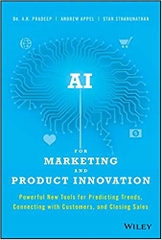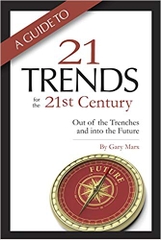-
-
-
Tổng tiền thanh toán:
-
-
Thông tin
-
Tìm sách theo yêu cầu
Jaron Lanier is the father of virtual reality and one of the world’s most brilliant thinkers. Who Owns the Future? is his visionary reckoning with the most urgent economic and social trend of our age: the poisonous concentration of money and power in our digital networks.
Lanier has predicted how technology will transform our humanity for decades, and his insight has never been more urgently needed. He shows how Siren Servers, which exploit big data and the free sharing of information, led our economy into recession, imperiled personal privacy, and hollowed out the middle class. The networks that define our world—including social media, financial institutions, and intelligence agencies—now threaten to destroy it.
But there is an alternative. In this provocative, poetic, and deeply humane book, Lanier charts a path toward a brighter future: an information economy that rewards ordinary people for what they do and share on the web.
Lanier has predicted how technology will transform our humanity for decades, and his insight has never been more urgently needed. He shows how Siren Servers, which exploit big data and the free sharing of information, led our economy into recession, imperiled personal privacy, and hollowed out the middle class. The networks that define our world—including social media, financial institutions, and intelligence agencies—now threaten to destroy it.
But there is an alternative. In this provocative, poetic, and deeply humane book, Lanier charts a path toward a brighter future: an information economy that rewards ordinary people for what they do and share on the web.
Product Details
- Paperback: 448 pages
- Publisher: Simon & Schuster; Reprint edition (March 4, 2014)
- Language: English
- ISBN-10: 1451654979
- ISBN-13: 978-1451654974
- Product Dimensions: 8.3 x 5.4 x 1.2 inches
- Shipping Weight: 13.4 ounces (View shipping rates and policies)
- Average Customer Review: 4.1 out of 5 stars See all reviews (97 customer reviews)
- Amazon Best Sellers Rank: #17,427 in Books (See Top 100 in Books)
- #13 in Books > Computers & Technology > Business & Management > Culture
- #31 in Books > Computers & Technology > Networking > Internet, Groupware, & Telecommunications
- #40 in Books > Business & Money > Industries & Professions > E-commerce
Editorial Reviews
Amazon.com Review
An Amazon Best Book of the Month, May 2013: Jaron Lanier's last book, You Are Not a Gadget, was an influential criticism of Web 2.0's crowd-sourced backbone. In Who Owns the Future?, Lanier is interested in how network technologies affect our culture, economy, and collective soul. Lanier is talking about pretty heady stuff--the monopolistic power of big tech companies (dubbed "Siren Servers"), the flattening of the middle class, the obscuring of humanity--but he has a gift for explaining sophisticated concepts with clarity. In fact, what separates Lanier from a lot of techno-futurists is his emphasis on the maintaining humanism and accessibility in technology. In the most ambitious part of the book, Lanier expresses what he believes to be the ideal version of the networked future--one that is built on two-way connections instead of one-way relationships, allowing content, media, and other innovations to be more easily attributed (including a system of micro-payments that lead back to its creator). Is the two-way networked vision of the internet proposed in Who Owns the Future quixotic? Even Lanier seems unsure, but his goal here is to establish a foundation for which we should strive. At one point, Lanier jokingly asks sci-fi author William Gibson to write something that doesn't depict technology as so menacing. Gibson replies, "Jaron, I tried. But it's coming out dark." Lanier is able to conjure a future that's much brighter, and hopefully in his imagination, we are moving closer to that. --Kevin Nguyen
--This text refers to the Hardcover edition.
Q&A with Jaron Lanier
Q. Years ago, in the early days of networking, you and your friends asserted that information should be free. What made you change your tune?
A. In the big picture, a great new technology that makes the world more efficient should result in waves of new opportunity. That’s what happened with, say, electricity, telephones, cars, plumbing, fertilizers, vaccinations, and many other examples. Why on earth have the early years of the network revolution been associated with recessions, austerity, jobless recoveries, and loss of social mobility? Something has clearly gone wrong.
The old ideas about information being free in the information age ended up screwing over everybody except the owners of the very biggest computers. The biggest computers turned into spying and behavior modification operations, which concentrated wealth and power.
Sharing information freely, without traditional rewards like royalties or paychecks, was supposed to create opportunities for brave, creative individuals. Instead, I have watched each successive generation of young journalists, artists, musicians, photographers, and writers face harsher and harsher odds. The perverse effect of opening up information has been that the status of a young person’s parents matters more and more, since it’s so hard to make one’s way.
Q. Throughout history, technological revolutions have caused unemployment but also brought about new types of jobs to replace the old ones. What’s different today?
A. Cars can now drive themselves, and cloud services can translate passages between languages well enough to be of practical use. But the role of people in these technologies turned out to be a surprise.
Back in the 1950s, the fantasy in the computer science world was that smart scientists would achieve machine intelligence and profound levels of automation, but that never worked. Instead, vast amounts of “big data” gathered from real people is rehashed to create automation. There are many, many real people behind the curtain.
This should be great news for the future of employment! Multitudes of people are needed in order for robots to speak, drive cars, or perform operations. The only problem is that as the information age is dawning, the ideology of bright young people and newfangled plutocrats alike holds that information should be free.
Q. Who does own the future? What’s up for grabs that will affect our future livelihoods?
A. The answer is indeed up for grabs. If we keep on doing things as we are, the answer is clear: The future will be narrowly owned by the people who run the biggest, best connected computers, which will usually be found in giant, remote cloud computing farms.
The answer I am promoting instead is that the future should be owned broadly by everyone who contributes data to the cloud, as robots and other machines animated by cloud software start to drive our vehicles, care for us when we’re sick, mine our natural resources, create the physical objects we use, and so on, as the 21st century progresses.
Right now, most people are only gaining informal benefits from advances in technology, like free internet services, while those who own the biggest computers are concentrating formal benefits to an unsustainable degree.
Q. What is a “Siren Server” and how does it function?
A. I needed a broad name for the gargantuan cloud computer services that are concentrating wealth and influence in our era. They go by so many names! There are national intelligence agencies, the famous Silicon Valley companies with nursery school names, the stealthy high finance schemes, and others.
All these schemes are quite similar. The biggest computers can predictably calculate wealth and clout on a broad, statistical level. For instance, an insurance company might use massive amounts of data to only insure people who are unlikely to get sick. The problem is that the risk and loss that can be avoided by having the biggest computer still exist. Everyone else must pay for the risk and loss that the Siren Server can avoid.
The interesting thing about the original Homeric Sirens was that they didn’t actually attack sailors. The fatal peril was that sailors volunteered to grant the sirens control of the interaction. That’s what we’re all doing with the biggest computing schemes.
Q. As a solution to the economic problems caused by digital networks, you assert that each one of us should be paid for what we do and share online. How would that work?
A. We’ve all contributed to the fortunes of big Silicon Valley schemes, big finance schemes, and all manner of other schemes which are driven by computation over a network. But our contributions were deliberately forgotten. This is partly due to the ideology of copying without a trace that my friends and I mistakenly thought would lead to a fairer world, back in the day.
The error we made was simple: Not all computers are created equal.
What is clear is that networks could remember where the value actually came from, which is from a very broad range of people. I sketch a way that universal micropayments might solve the problem, though I am not attempting to present a utopian solution. Instead I hope to deprogram people from the “open” ideal to think about networks more broadly. I am certain that once the conversation escapes the bounds of what has become an orthodoxy, better ideas will come about.
Q. Who Owns the Future seems like two books in one. Does it seem that way to you?
A. If all I wanted was sympathy and popularity, I am sure that a critique by itself—without a proposal for a solution—would have been more effective.
It’s true that the fixes put forward in Who Owns the Future are ambitious, but they are presented within an explicitly modest wrapping. I am hoping to make the world safer for diverse ideas about the future. Our times are terribly conformist. For instance, one is either “red” or “blue,” or is accepted by the “open culture” crowd or not. I seek to bust open such orthodoxies by showing that other ideas are possible. So I present an intentionally rough sketch of an alternate future that doesn’t match up with any of the present orthodoxies.
A reality-based, compassionate world is one in which criticism is okay. I dish it out, but I also lay my tender neck out before you.
Q. You’re a musician in addition to being a computer scientist. What insight has that given you?
A. In the 1990s I was signed to a big label, but as a minor artist. I had to compete in an esoteric niche market, as an experimental classical/jazz high prestige sort of artist. That world was highly competitive and professional, and inspired an intense level of effort from me.
I assumed that losing the moneyed side of the recording business would not make all that much of a difference, but I was wrong. I no longer bother to release music. The reason is that it now feels like a vanity market. Self-promotion has become the primary activity of many of my musician friends. Yuk.
When the music is heard, it’s often in the context of automatically generated streams from some cloud service, so the listener doesn’t even know it’s you. Successful music tends to be quite conformist to some pre-existing category, because that way it fits better into the automatic streaming schemes. I miss competing in the intense NYC music scene. Who keeps you honest when the world is drowning in insincere flattery?
So here I am writing books. Hello book critics!
From Booklist
The author, a computer scientist and digital-media pioneer, describes the negative effects on our economy (such as the recent recession and damaged middle class) by digital networks, defined as not only the Internet and the Web, but also other networks operated by outfits like financial institutions and intelligence agencies where the phenomenon of power and money becomes concentrated around the people who operate the most central computers in a network, undervaluing everyone else. Information is considered free, for example, free Internet services for consumers and data that financial-services firms collect and use without paying for it. The author’s solution is a future in which people are paid for information gleaned from them if that information turns out to be valuable. Lanier describes a future in which most productivity will be driven by software and software could be the final industrial revolution. This is a challenging book about a future information economy that the author suggests does not need to be dominated by technology. --Mary Whaley --This text refers to the Hardcover edition.
Most Helpful Customer Reviews
135 of 146 people found the following review helpfulBy Orin Thomas on April 1, 2013
Format: Kindle Edition Verified Purchase
If you've read "Race against the machine" and "The lights in the tunnel" you'll be familiar with part of Lanier's thesis, though Lanier also goes further and ties in the demonetization of information in his predictions about the future. There are some quotable lines in the book, one of which stayed with me even though I hadn't thought of it precisely in this way - something like "the internet destroys more jobs that it creates". In a nutshell, by introducing efficiencies, by disrupting existing markets, the internet makes things more efficient so that a greatly reduced number of people can perform the same tasks. What Lanier also highlights is that the "new jobs" that were meant to replace the ones lost to automation aren't appearing. In part because there has also been as strong push to make "information free", so jobs creating that information that "wants to be free" won't put the bread on the table. Lanier suggests that the Internet is shrinking the economy because by making information free, it's taken the value/wealth that once existed in creating that information out of the economy. That the number of jobs that the internet creates is a fraction of the number that it has automated away.
Lanier proposes some solutions to this problem which would involve a seismic shift in the way that current users of the internet consider the cost of information. He suggests that the Internet could create jobs if only the creation and distribution of information could be monetized. He provides some ideas in this direction. He also makes some predictions about what happens if something doesn't change.
I felt that Lanier described the problem well without going into an approach where he over did it.Read more ›
Lanier proposes some solutions to this problem which would involve a seismic shift in the way that current users of the internet consider the cost of information. He suggests that the Internet could create jobs if only the creation and distribution of information could be monetized. He provides some ideas in this direction. He also makes some predictions about what happens if something doesn't change.
I felt that Lanier described the problem well without going into an approach where he over did it.Read more ›
By haig shahinian on May 27, 2013
Format: Kindle Edition
I've read many books on society's current economic predicament resulting from networked information technologies clashing with outmoded political economic systems, but Jaron Lanier tries tackling the problem from a prescriptive engineering approach which I find refreshing and fruitful. To clarify, by taking an engineering approach I don't mean simple technocratic reductionist thinking which presupposes technical fixes to be silver bullets that trump political or social advances, I mean a holistic and humanistic engineering of technosocial systems that incorporates social and political dynamics into the foundation of our networked technologies. Larry Lessig coined the phrase 'code is law', and Lanier builds on this idea in his new book to show us that 'code is economics'.
Ironically, one of Lanier's major gripes is centered precisely on the free/open source/creative commons ideology that Lessig helped popularize and which has become a dominant mindset of information technology designers, entrepreneurs, and activists. While filled with good intentions, this movement, according to Lanier, is the seed of much of the problems we are facing and can only lead to a dystopian future. This movement wants information to be free because information is abundant in a digital network where the cost of copying bits is close to zero. However, when information is free, the only way to make sustainable profits within the information economy is to become spying platforms and gatekeepers of information that act as intermediaries between consumers and producers/advertisers, exploiting both in the process.Read more ›
Link: http://www.amazon.com/Antifragile-Things-That-Disorder-Incerto/dp/0812979680/
Ironically, one of Lanier's major gripes is centered precisely on the free/open source/creative commons ideology that Lessig helped popularize and which has become a dominant mindset of information technology designers, entrepreneurs, and activists. While filled with good intentions, this movement, according to Lanier, is the seed of much of the problems we are facing and can only lead to a dystopian future. This movement wants information to be free because information is abundant in a digital network where the cost of copying bits is close to zero. However, when information is free, the only way to make sustainable profits within the information economy is to become spying platforms and gatekeepers of information that act as intermediaries between consumers and producers/advertisers, exploiting both in the process.Read more ›
XEM THÊM TẠI AMAZON.COM
- Thông tin chi tiết
- Mục lục
- Đọc thử
- Đọc thử
- Đánh giá & bình luận của người mua
- Những cuốn sách cùng chủ đề hoặc có liên quan
Tại web chỉ có một phần nhỏ các đầu sách đang có nên nếu cần tìm sách gì các bạn có thể liên hệ trực tiếp với Thư viện qua Mail, Zalo, Fanpage nhé
Đăng ký nhận tin qua email
Hãy đăng ký ngay hôm nay để nhận được những tin tức cập nhật mới nhất về sản phẩm và các chương trình giảm giá, khuyến mại của chúng tôi.













